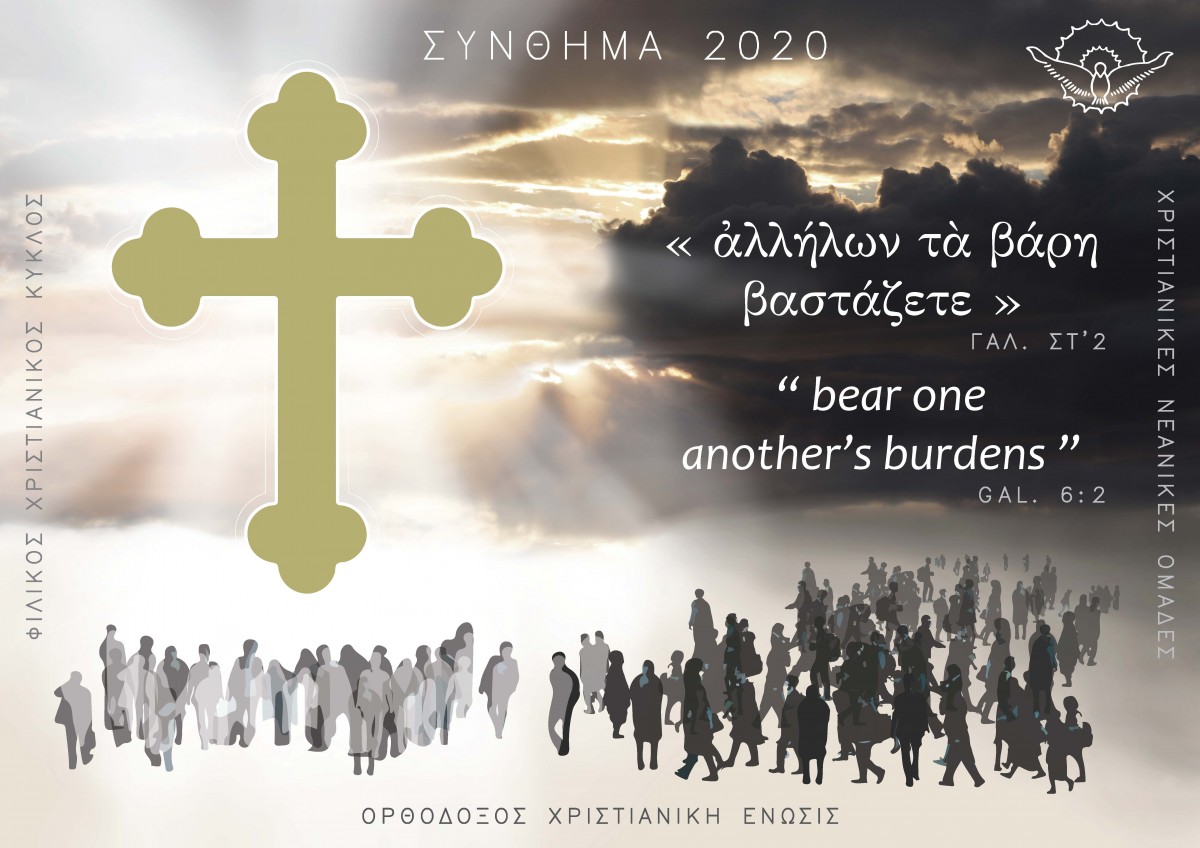This year’s Synthima is focused on St Paul’s compelling advice that we bear one another’s burdens (Galatians 6:2). This is not an easy task. Rather, bearing each other’s burdens is hard work. It requires thought and discernment. It means that we need to work towards the greater good in every situation. It requires us to put love and the other person first, and ourselves last. Metropolitan Anthony of Sourozh provides a helpful perspective, “Every one of us is in the image of God, and every one of us is like a damaged icon. But if we are given an icon damaged by time, we would treat it with reverence, with tenderness, with broken heartedness. We would not pay attention primarily to the fact that it is damaged, but to the tragedy of it being damaged. We would concentrate on what is left of its beauty, and not on what is lost of its beauty. And this is what we must learn to do. We must learn to look for the underlying beauty that is in each person.”
To bear one another’s burdens often feels impossible, and often humanely speaking the burdens we are called to carry are impossible. But what is impossible for man is possible with God. We are not in this alone but are assisted by the Holy Spirit, which we received at our Baptism, and which nourishes and sustains us with Holy Confession and Holy Communion. A little earlier at Galatians 5:22-23 St Paul mentions that the fruit of the Spirit is “love, joy, peace, longsuffering, kindness, goodness, faithfulness, gentleness, self-control…” The Holy Spirit, which is present when we pray fervently in Church, and is within the quiet corner of our hearts, will bear fruit and help us to lift the other person, to love, to sacrifice, and to do so cheerfully.
It is important for us to recognise that we all have sinned and that the Lord continuously bears our burdens and forgives us again and again. He is merciful and does not abandon us. He forgives us and raises us up. How can we not do the same with our brothers and sisters? St John Chrysostom tells us that since it is impossible for man to be without failings, then we should not scrutinise severely the offences of others, but to patiently bear their failings, that our own failings may in turn be borne by others.
St Paul asks us to mirror the love that Christ has for us all: “Love is patient and kind; love is not jealous or boastful; it is not arrogant or rude. Love does not insist on its own way; it is not irritable or resentful; it does not rejoice at wrong but rejoices in the right. Love bears all things, believes all things, endures all things” (1 Corinthians 13:4-7). We need to support each other to attain salvation. This is illustrated by deer, who when swimming to reach a destination support the burden of their heads on each other. When the deer that leads becomes tired, he returns to the rear, supporting his head on the deer in front of him. Thus, each in turn, manages to accomplish the journey, and they do not abandon each other. This is what the Apostle refers to, that altogether we bear each other’s burdens and “so fulfil the Law of Christ” (Galatians 6:2).
Source: Lychnos February/March 2020

